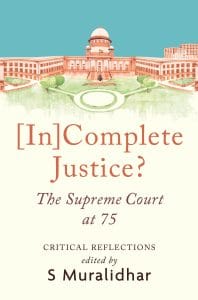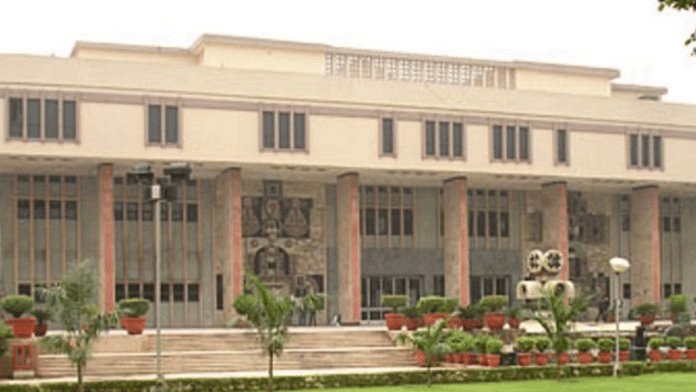Depending on the agenda for deliberation, the SCC consists of the CJI and the two senior most judges or four senior-most judges. Consideration of the HCC recommendations is done by the SCC comprising the CJI and two judges. All other deliberations are done by the SCC comprising the CJI and four judges. So, how does the SCC actually function in the selection process?
First of all, it must be clear that although there could be and are disagreements within the SCC, the deliberations are by and large cordial. There have been problems in the recent past. For example, when Chelameswar J decided not to attend the meetings of the SCC, or when, a couple of years later, Rohinton Nariman J also decided not to participate. During these periods, no meeting of the SCC could be held. In another instance, DY Chandrachud J held court till 9 p.m. on a day when a meeting of the SCC was scheduled and kept the CJI and three other judges waiting, till the CJI decided to call off the meeting.
It must be assumed that recommendations made by the HCC are after due deliberations and only after receiving inputs from all those whom the HCC consults. This assumption is basic, and the SCC accords due consideration to the recommendations. However, in terms of the MoP, the SCC invites the views of consultee judges.
Another reason why the assumption is basic is that the HCC is fully conversant with the competence, character and integrity of the lawyer or a judicial officer recommended for appointment. If there is some doubt, it is unlikely that the HCC would recommend that person for appointment. But, as mentioned above, the views of consultee judges are obtained by the CJI. Frankly, with the passage of time, a consultee judge may not be up to date with the calibre of the lawyers and judicial officers recommended for appointment. In such a situation, the opinion of the consultee judge hardly adds any value to the deliberations. It is difficult to say how much weight is accorded to the opinion of the consultee judge.
It is imperative for the SCC to have an interaction with the person considered for appointment on the recommendation of the HCC. By and large, judges in the SCC would probably not have met the recommended lawyer or judicial officer. Should the case for appointment be considered only on the basis of file notings? For an important constitutional position, where the law is to be solemnly interpreted for the entire state, I am of the view that a decision should not be taken by the SCC only on the basis of file notings and without actually having a conversation, however brief, with the person recommended for appointment. This interaction is not only to familiarize the SCC with the person concerned (the recommendee) but also to provide any clarification, if required, or clear any doubt in the mind of any of the judges in the SCC or a consultee judge. This practice was initiated by the SCC on my suggestion when Ranjan Gogoi was the CJI. The perception went around that it was an interview, but it was always only a familiarization interaction.
In a strange incident, many years ago, a lawyer from Delhi was recommended for appointment to the HC. Since his college days, he was jocularly nicknamed ‘Boozer’ even though he was and is a teetotaller. The recommendation was turned down because his nickname gave a faulty impression to the GoI and the SCC. I believe a brief conversation between the SCC and the CJ of the HC, or the lawyer would have cleared up any doubts. Such are the dangers of the SCC working in a silo. However, the good news is that he was eventually appointed as a judge, though several years later.
The SCC ought to be more open and communicative, both with every lawyer or judicial officer recommended by the HCC and the CJ of the concerned HC, whether that CJ continues in that position or has become a judge of the SCI. The SCC must not only apply its mind to every recommendation but also delve into the mind of the HCC to appreciate the reasons for the recommendation in case they are not explicitly stated in the resolution of the HCC.
Requesting the High Court Collegium to Reconsider Recommendations
Sometimes, the SCC returns a recommendation made by the HCC for its reconsideration. In my view, the SCC ought to take a decision one way or the other in consultation with the CJ of the concerned HC. The entire appointment process takes considerable time, and to send the recommendation back for reconsideration makes little sense. To make matters worse, the SCC does not assign any reasons for reconsideration. This places the HCC in an unenviable position, for it has to try and decipher the mind of the SCC. I have had that experience in the Andhra Pradesh HC and had to consult judges of the HC to try and read the mind of the SCC when it sent back two recommendations for reconsideration. Fortunately, the HCC reconsidered the recommendation from every possible angle (only on a guess) and eventually both lawyers were appointed as judges.
Also read: There’s no statue to Begum Mofida Ahmed in Jorhat. She was 1st Assamese Muslim woman MP
MoP’s Requirements
It is very important for the SCC (and also for the HCC) to follow the requirements of the MoP. One of the requirements is that the person recommended (usually a lawyer) should be forty-five years of age when the recommendation is made. This requirement has been unfailingly observed at least since the Fourth Judges’ case. The importance of this requirement was recently taken note of by the SCC while considering a recommendee for appointment to the Delhi HC, as mentioned in the resolution of the SCC of 21 August 2024. The SCC noted in its resolution, ‘As far as the observation regarding age of the candidate is concerned, we are of the view that the candidate fulfils the threshold age criterion of forty five years as on the date of recommendation by the Collegium of the High Court.’ In the recent past, some HCCs sought to circumvent this requirement by stating that by the time the case of the recommendee is considered, he or she would be forty-five years of age. Such recommendations were not accepted by the SCC.
But in many earlier cases, neither the HCC and the SCC, nor the Executive, adhered to this requirement in the MoP. For example, Dipak Misra (17 January 1996), SA Bobde (29 March 2000), NV Ramana (27 June 2000), DY Chandrachud (29 March 2000), AM Khanwilkar (29 March 2000), SK Kaul (3 May 2001) and Dipankar Datta (22 June 2006) JJ were appointed as judges of the HC even though they were not yet forty-five years of age but in their early 40s. More recently, a lawyer in the Madhya Pradesh HC was recommended for appointment when he was forty-four years old. He happened to be closely related to a judge, who at the time when the recommendation was accepted by the SCC, was J3 in the SCI. The resolution of the SCC passed on 10 May 2019 cryptically remarks, ‘As far as age factor of Shri [xxx] is concerned, the Collegium is fully satisfied with the justification given by the High Court Collegium while recommending his name.’ He was sworn in seventeen days later. What was the justification? Will this case set a precedent? If so, what would be the binding nature of the MoP?
As noted, there have been instances when recommendations have been made by the HCC on the postulate that the lawyer will be forty-five years old by the time the case is processed and appointment made. The SCC has not accepted such recommendations yet seems to have forgotten about it when the Madhya Pradesh lawyer’s recommendation was taken up for consideration.
The requirement that a candidate has a minimum threshold income, has its own set of problems. While it is relatively easy for lawyers in Delhi, Mumbai, Chennai, Bengaluru and Kolkata to meet the income limit, the fees commanded by lawyers in smaller jurisdictions, such as Sikkim and some of the states in the north-east, and perhaps some other states, is less than the clerkage paid by senior lawyers in some metropolitan cities. The SCC will need to tweak this requirement so that there is some semblance of equality and deserving lawyers in other states are equally well represented. There was an instance when some lawyers from Kerala filed revised returns of income only to meet the income criterion. While there is nothing wrong with this, it gave the impression that the income was jacked up only on advice received so that an income below the threshold would not disentitle them from appointment. These lawyers participated in an interaction with the SCC, and after having satisfactorily removed the doubts, they were recommended for appointment by the SCC. This is the value of the interaction.
 This excerpt by Madan B Lokur from ‘[In]Complete Justice? The Supreme Court at 75’, edited by S Muralidhar, has been published with permission from Juggernaut.
This excerpt by Madan B Lokur from ‘[In]Complete Justice? The Supreme Court at 75’, edited by S Muralidhar, has been published with permission from Juggernaut.






